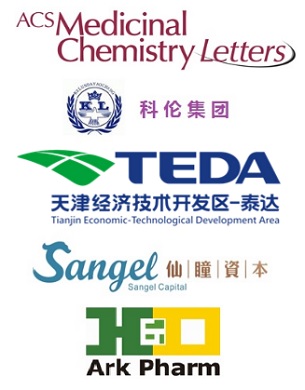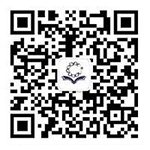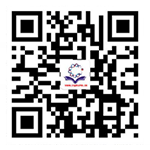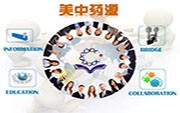国际新闻精选周六(2017年2月11日)
Immunomedics in $2 bln licensing deal with Seattle Genetics
Drug developer Immunomedics Inc said on Friday it entered into a development and licensing deal worth up to $2 billion for its experimental cancer drug with Seattle Genetics Inc. Immunomedics’ shares rose as much as 33 percent to a more than 3-year high of $5.72 in early morning trading. Shares of Seattle Genetics, which forecast full-year revenue below estimates on Thursday, were down 4.2 percent at $60.17. Immunomedics, which in October engaged Greenhill & Co to assist in licensing out the drug, IMMU-132, will receive $250 million in upfront cash payment. The drug is currently in an early stage study in advanced breast cancer patients whose disease has progressed despite multiple therapies, and has won the U.S. Food and Drug Administration’s “breakthrough status,” granting it an expedited path toward approval.【阅读原文】
Aurobindo Pharma buys 4 biosimilar products from TL Biopharmaceutical
Aurobindo Pharma Ltd Thursday said it has acquired four biosimilar products from Swiss firm TL Biopharmaceutical AG of for an undisclosed amount.
As part of this agreement, TL Biopharmaceutical will supply all the developmental data for four molecules and Aurobindo Pharma or its affiliates will develop, commercialize and market these products globally.【阅读原文】
Tracon slips as brain cancer trial misses the mark
San Diego biotech Tracon has suffered a setback with a trial of its lead cancer drug carotuximab failing a phase 2 trial in a form of brain cancer.
The study—conducted by the National Cancer Institute (NCI)—showed that adding carotuximab to Roche's Avastin in patients with recurrent glioblastoma was no better than Avastin on its own in extending progression-free survival (PFS), although there was a trend toward an improvement in overall survival, said Tracon.【阅读原文】
Daiichi axes Japan R&D site a month after Indian research unit cull
Exactly one month after Daiichi Sankyo decided to shutter its 170-person Indian R&D site the pharma company is swinging the ax again, this time in its native Japan.
Under the cull, which is part of the “ongoing efforts to review its global R&D structure to increase R&D productivity,” its Japanese research subsidiary, known as Asubio Pharma and based out of Kobe, will be closed down by the end of March next year. It opened back in 2009.【阅读原文】
New insight into malaria could boost the search for a vaccine
The effort to develop an effective vaccine against malaria has been long and frustrating, largely because scientists have been unable to figure out precisely how the parasite that causes the disease, Plasmodium, infects red blood cells. Now researchers at the Wellcome Trust Sanger Institute in the U.K. believe they’ve solved a piece of that puzzle in a way that could be used to make an effective vaccine against malaria.【阅读原文】
Another biotech games the system, and everyone gets to pay for the fallout
As I write, our story on Marathon and its old, cheap steroid — deflazacort — that it steered to an FDA approval yesterday is gaining some serious traction on social media outlets like Reddit. That’s where the online mob formed for Martin Shkreli, after word spread that he and Turing had hiked the price of Daraprim for HIV users by 5000%-plus. And it’s where you can feel the visceral public anger that’s been building over drug prices.
Once again, we have a company that is playing the system, grabbing a steroid that’s been sold around the world for decades and jacking up the rate by a jaw-dropping amount. $89,000, in this case, up more than $88,000 over what it costs in Canada. Marathon also got a priority review voucher worth hundreds of millions of dollars for its slight trouble, to recognize a contribution for R&D that includes buying rights to a study that was done in 1995 — before the 6-minute walk test became a standard gauge of success.【阅读原文】
Intercept ‘lowers the bar’ on its pivotal PhIII OCA study for NASH
Intercept CEO Mark Pruzanski has redrawn the rules on their pivotal Phase III study of obeticholic acid (OCA).
After talks with the FDA, Pruzanski said today that investigators can reduce their target on the number of patients needed for an interim analysis of the FXR agonist in 2019, dropping the target from 1,400 to 750. And the agency has signed off on changing the endpoint from fibrosis and NASH resolution to either fibrosis or NASH while accepting an objective definition of NASH resolution to clarify success.【阅读原文】
Why Did That Drug Price Increase 6,000%? It's The Law
It’s happened again. Of course it has happened again. A drug company has brought a drug that has been available as a generic elsewhere in the world for decades at a shockingly inflated price.
The drug, in this case, is a steroid called deflazacort, has been approved for treating kids with Duchenne muscular dystrophy. It has fewer side effects than existing steroids, and many patients have been getting it from Europe or Canada at a price between $1,000 or $2,000 a year.【阅读原文】
美中药源原创文章,转载注明出处并添加超链接,商业用途需经书面授权。★更多深度解析访问《美中药源》~
★ 请关注《美中药源》微信公众号 ★



















 微信号:美中药源
微信号:美中药源